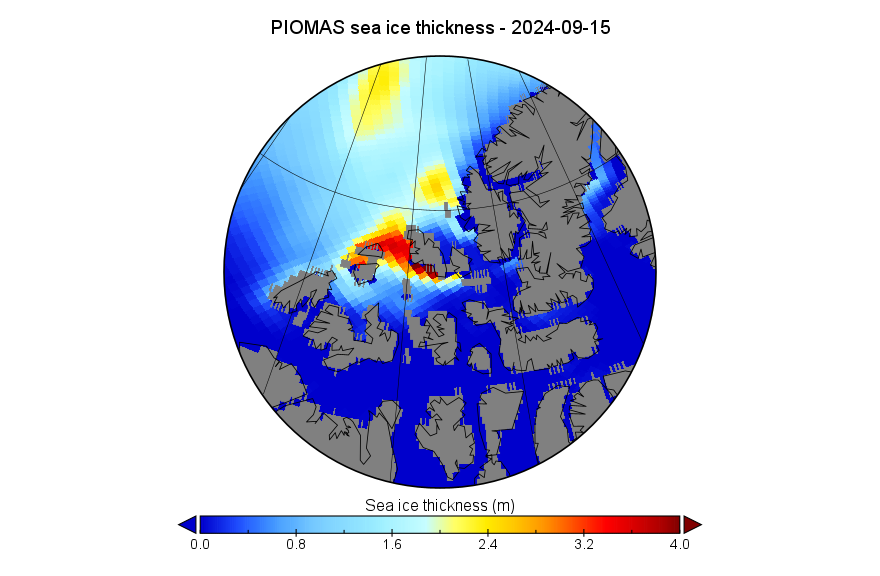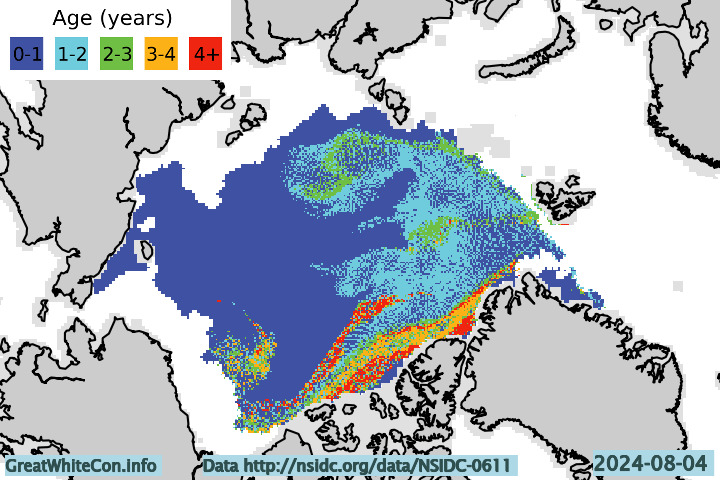Just have a think: Arctic Sea Ice minimum 2024. Three degrees Celsius warming now baked in?
Posted on 24 September 2024 by Guest Author
This video includes conclusions of the "Just have a Think" channel's creator Dave Borlace. It is presented to our readers as an informed perspective. Please see video description for references (if any).
From the video‘s description:
Arctic Sea ice reaches it's minimum extent each year around the middle of September. This year is one of the lowest in recorded history. Ocean temperatures have been so 'off the charts' in 2023 and 2024 that scientists fear those waters have reached their capacity to mop up after us humans and are now starting to release that energy. On our current trajectory, by 2100, our planet will reach a temperature not seen for 3 MILLION years!. So...what's the plan???
Support Dave Borlace on Patreon: https://patreon.com/justhaveathink































 Arguments
Arguments






























From the World Meteorology Organization's report; The Global Climate 2011-2020
"Reduced sea ice extent was accompanied by a decrease in thickness and volume, although data for these indicators are more limited. There has also been a marked decrease in the extent of ice which lasted for
more than one year.
In March 1985, old ice (four years or more) accounted for 33% of the total ice cover of the Arctic Ocean, but that figure had fallen below 10% by 2010, and in March 2020 it had dropped to 4.4%..
Ice of this age is now mostly confined to a narrow strip extending from north of Greenland along the north-west edge of the Canadian archipelago."
"Ice of this age is now mostly confined to a narrow strip extending from north of Greenland along the north-west edge of the Canadian archipelago."

The most recent PIOMAS thickness data suggests that it is now mostly confined to a small area within the CAA:
https://GreatWhiteCon.info/2024/09/facts-about-the-arctic-in-september-2024/#Sep-21
Jim Hunt @2 ,
you were, two or three days ago, crossing swords with the amiable skeptics at WUWT blog, about Arctic ice.
It seems they feel that a sort-of flat-lining of minimum Arctic sea-ice extent during the past decade . . . is a disproof of the contemporary reduction in Arctic sea-ice volume . . . which in turn demonstrates that there will be no further ice melt as sea-level continues to rise ~ the ongoing rise which in turn disproves that global warming is occurring. (If I have understood their argument correctly.)
And since global warming is not continuing, despite rising measurements by worldwide thermometers, then the whole AGW thing is a hoax and can be ignored.
Or something like that.
And if Plan Denial eventually crumbles, then the WUWT skeptics will develop "concepts of a plan" to deal with the non-problem. [Please excuse contemporary 2024 political joke.]
Eclectic @3,

I was indeed, but the UKMO's Tony Banton described Anthony's flock of faithful followers as "attack-dogs"!
Even when I point them at scientific explanations for the alleged "hiatus" in the wiggly line of Arctic sea ice extent they respond with "ROFLMAO" and similar astonishing insights:
https://GreatWhiteCon.info/2024/09/the-2024-arctic-sea-ice-minimum-extent-in-the-cryodenialosphere/
I'll be publishing a more "scientific" article on the subject, as and when the overdue sea ice age data for August are released. In the meantime, there wasn't much "thick, old ice" left in the Arctic Ocean at the beginning of August:
Jim Hunt @4 :
Yes, you won't get much sense from yer average WUWT-er in the comments columns. As you know. Still, your good self plus Tony Banton, Nick Stokes, and a few others all do contribute a modicum of amusement to the columns ~ when you stoop to tweak the noses of the regular "attack dogs" at WUWT.
But your term "attack dogs" is being overly generous to what is really more like a pack of rabid Chihuahuas with blunt teeth.
Keep up your good work, Jim. And ankle boots will be enough protection against the rabies at WUWT.
.